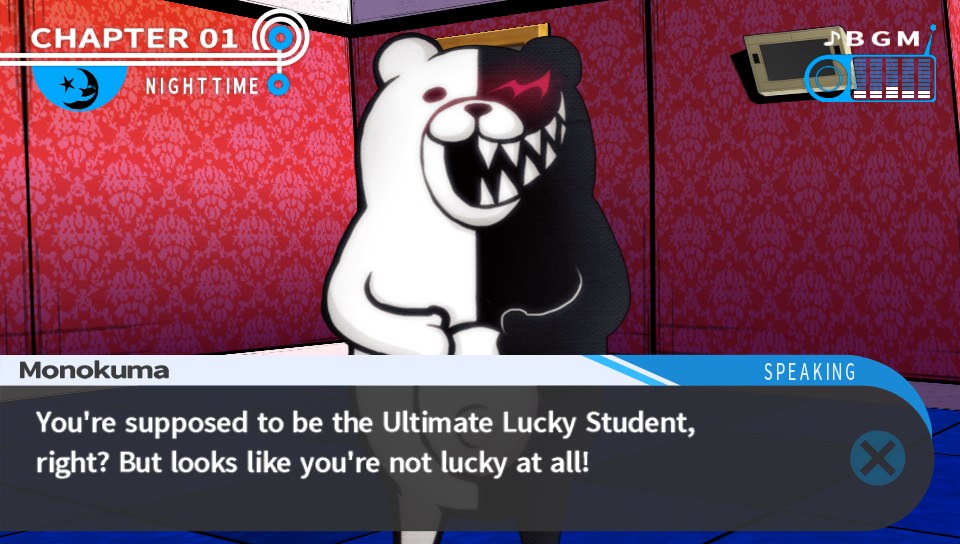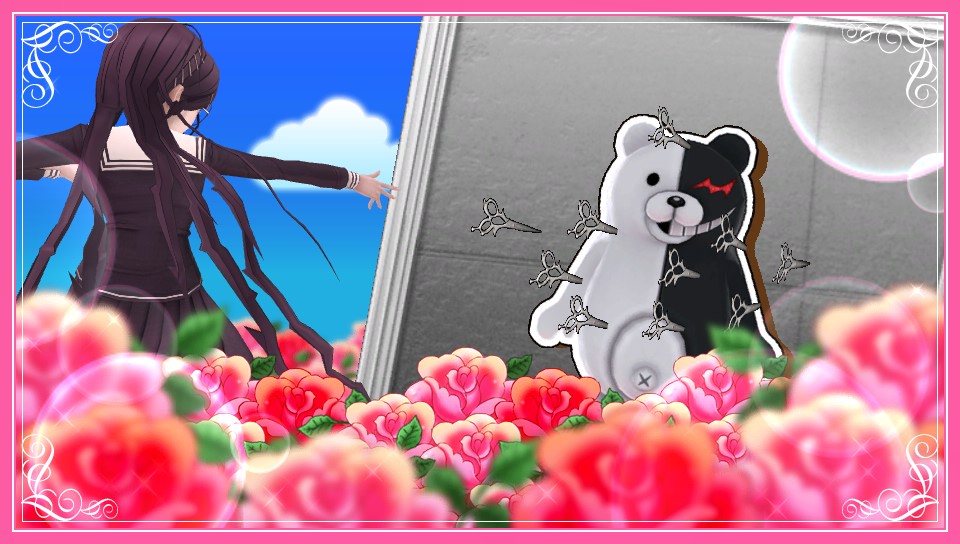Though it took awhile to ramp up, the Danganronpa game series has been a runaway success for Japanese developer Spike Chunsoft. The Battle Royale-style high school horror role-playing series went from a quiet 2010 PlayStation Portable release to a large franchise, now with more than a half-dozen games across multiple platforms out as well as book, comic, and animation adaptations.
Though U.S. publisher NIS America won’t talk numbers, it seems that the franchise has been successful in the West, too. By the time first game in the series came to Sony’s PlayStation Vita in the U.S. in early 2014 (a remake of a 2013 Japanese PSP release), NIS America’s initial runs had already sold out on its website. The unique presentation, unusual characters, (a crazed, murderous bear name Monokuma is a fan-favorite) and dark tone struck a chord with players, giving the franchise a big boost on social networks — and that buzz has yet to die down. This all had NIS America announcing a localized release of its sequel, Dangaonronpa 2: Goodbye Despair, only a few months after the original release. And it followed last month with the announcement of a third game, an action-based spin-off, Danganronpa Another Episode: Ultra Despair Girls.
GamesBeat met with series director and scenario writer Kazutaka Kodaka last week at the 2015 Game Developers Conference, just ahead of his talk on role-playing games there. He talked to us through a translator, and here is a transcript of our interview.
GamesBeat: Were you and the team at Spike surprised by the success of the Danganronpa franchise in the West? It seemed to come out of nowhere …
Kazutaka Kodaka: Yes, definitely surprised. Initially, we didn’t even think the game was going to hit Japan. So the fact that it became popular over here is something that is really surprising and gratifying. Originally, we set out to create something that we believed in and that we liked, so to see that people like it everywhere is pretty cool.
GamesBeat: Did you work to build in international appeal for the series games from the beginning?
Kodaka: Not at all. We did not make any considerations for the West.
GamesBeat: Has Spike been tracking the Western fan following for Danganronpa? Have you seen some of the fan content that has come out of that following, like the let’s play videos and the push for fan translations? You can’t bring these games out here fast enough.
Kodaka: Actually, I guess you could say there is a huge fan base here. But I’m not fully aware of it being in Japan all the time. [Laughs]
But right now we’re sitting in a coffee shop, right? I walked out earlier to have a cigarette and someone came up to me and said, “Hey, you’re the Danganronpa guy.” I can’t speak English so I just sort of smiled and nodded, and we shook hands. So, obviously, there’s a fan base here.
GamesBeat: Are you approaching development on current and future games differently knowing of this following?
Kodaka: My approach on how we deal with the games [for the West] is no different from how we deal with them in Japan. It’s about creating a game, a story, or a scenario that we want to create — something that we think will make fans happy. If it’s something that we want to make that is really what drives us forward, and I don’t think that will change regardless of where our fans are.
GamesBeat: What do you think it is about these games that resonates with fans?
Kodaka: What comes to mind immediately, in my opinion, I really feel that Danganronpa is the sum of its parts. If you were to take away the characters, or the horror elements, or the gameplay, it would no longer be Danganronpa. It has come to the point now where something that comes out with the Danganronpa name has a net about it, as it were, and that is because it is the sum of all of these things together. It’s something that’s unique in and of itself. That’s what resonates with people — all of these things working together in unison.
GamesBeat: Many fans say that they enjoy Monokuma’s pop culture references? How did those come in? Did they come in during localization, or before?



